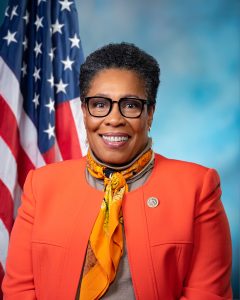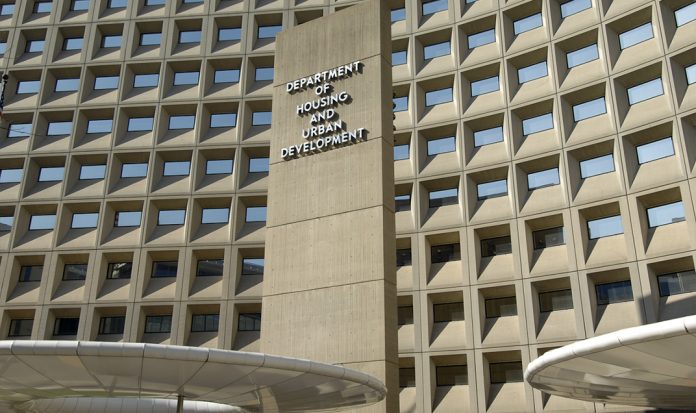U.S. Department of Housing and Urban Development is withdrawing the previous administration’s proposed rule that would have weakened the Equal Access Rule. The Equal Access Rule ensures that all individuals regardless of sexual orientation or gender identity have equal access to the programs, shelters, other buildings and facilities, benefits, services, and accommodations.

“Access to safe, stable housing—and shelter—is a basic necessity,” HUD Secretary Marcia L. Fudge said. “Unfortunately, transgender and gender non-conforming people report more instances of housing instability and homelessness than cis-gender people. Today, we are taking a critical step in affirming HUD’s commitment that no person be denied access to housing or other critical services because of their gender identity. HUD is open for business for all.”
The Trump administration refused to fully implement the Equal Access Rule and proposed a rule in 2020 that would have allowed shelter programs and operators to subject transgender individuals to inappropriate and intrusive inquiries, deny them accommodations, and subject them to greater harassment, HUD said.
Action withdrawing the rule will be submitted to the Federal Register within a week.
Added Resources, and Background in Equal Access Protection
Additionally, HUD is releasing technical assistance resources prepared by technical assistance providers to HUD grantees. These resources will support HUD’s Office of Community Planning and Development grantees in implementing the Equal Access Rule.
The 2016 CPD Equal Access Rule requires that HUD grantees funded in whole or in part by any Office of Community Planning and Development (CPD) program ensure equal access to community planning and development programs, shelters, other buildings and facilities, benefits, services, and accommodations. Grantees must ensure shelter access be provided to a person in accordance with that person’s gender identity, and in a manner that affords equal access to the person’s family. The rule further ensures that, when consideration of sex is prohibited or not relevant, individuals will not be discriminated against based on actual or perceived gender identity, and where legitimate consideration of sex or gender is appropriate—for example, for shelters that serve only one sex or otherwise operate in a sex-segregated way—the individual’s own self-identified gender identity will govern.
On July 24, 2020, the previous administration proposed a rule entitled “Making Admission or Placement Determinations Based on Sex in Facilities Under Community Planning and Development Housing Programs”. This proposed rule, if finalized, would have significantly undermined the 2016 CPD Equal Access Rule.
The proposed 2020 Shelter Rule would have allowed for HUD-sanctioned, federally funded discrimination against transgender people, who face disproportionately high rates of homelessness and extreme risk in unsheltered homelessness.
First, the rule would have allowed HUD CPD-funded shelters and other facilities to create policies excluding transgender and gender non-conforming people from being placed in single-sex facilities that aligned with those persons’ gender identities. This would have created insurmountable barriers to shelter access for transgender and gender non-conforming people who already face serious discrimination and difficulty in safely accessing shelters.
Second, the rule would have allowed CPD grant funding recipients, subrecipients, owners, operators, managers, and providers to overrule the gender identity proffered by a person seeking shelter and make their determination about that person’s gender. It allowed CPD funding recipients to focus solely on a person’s sex assigned at birth and then assess that based on physical factors such as height and the presence of facial hair. This intrusive and humiliating inquiry would be inflicted on the especially vulnerable people experiencing homelessness, many of whom have experienced sexual assault or other trauma.
Equal access to HUD programs that serve people who are homeless or at risk of homelessness is essential in addressing the challenges faced by transgender and gender non-conforming persons. National research has indicated that denials of access to shelters for transgender and gender non-conforming persons based upon gender identity are commonplace. Transgender women reported being excluded from women’s shelters at high rates. In one key study, transgender housing testers called shelters in four states to ask about where they would be housed. Only 30% of the shelters contacted by the testers were prepared to house transgender women with other women, as would have been appropriate.
Transgender and gender non-conforming persons face enormous safety risks in shelters. According to a national survey by the National Center for Transgender Equality, nearly half of all transgender respondents who accessed shelters left those shelters because of the treatment they received there — choosing to live on the streets over the abuse and indignity they experienced in a shelter. This survey further reported that 25% of transgender persons who stayed in shelters were physically assaulted and 22% were sexually assaulted in shelters.
MHInsider, the premier source of manufactured housing news, will continue to update readers on what the new HUD Code final rule means for the industry, and the customers who buy and live in new manufactured homes.










